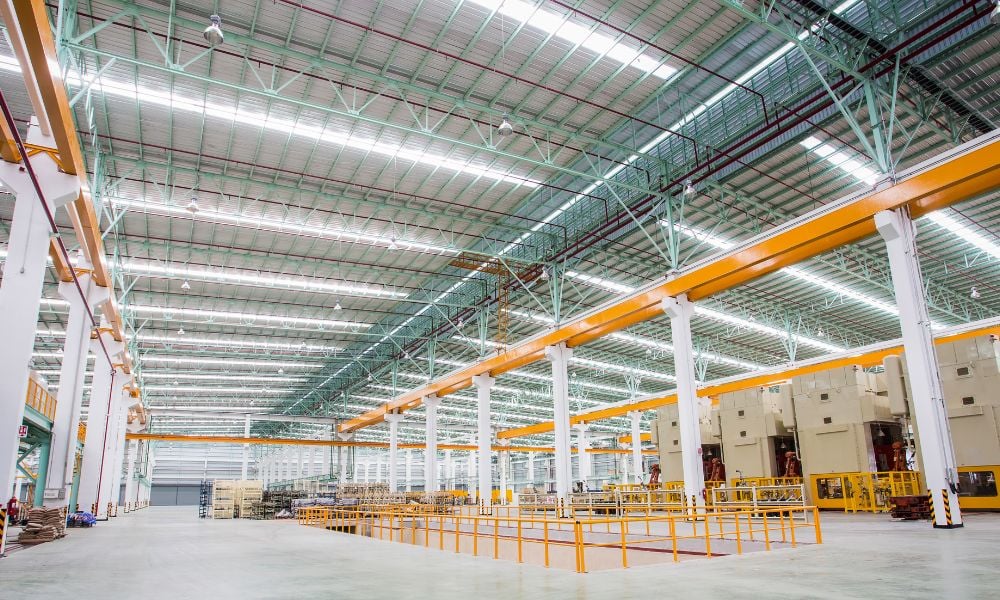Colliers Canada warns that escalating trade tensions could hit the warehouse and logistics sector hardest

The ongoing trade war and recent surge in tariffs could deal a heavy blow to Canada's once-resilient industrial real estate sector, according to Colliers Canada.
Adam Jacobs, head of research at Colliers Canada, said the asset class has been “bulletproof” over the past decade, boosted by “high immigration, e-commerce expansion and same-day delivery.” But he warned the tide may be turning.
“It does seem like the impact of this [trade war] might be felt a little more on industrial just because the industries that are targeted, like automotive, agriculture, resources, all of those, they are just much bigger users of industrial space than they are of office space,” Jacobs explained.
While some companies are increasing warehouse storage to maintain just-in-time fulfillment despite tariff volatility, Jacobs noted that the overall effect of the trade conflict is negative.
“I can’t honestly say tariffs are going to help anything in the real estate world,” he said. “They are not going to help the office market or the housing market or the industrial market. It’s clearly a negative, it’s just a matter of the impact might be a little more profound [on industrial real estate].”
Office and retail resilience
Unlike industrial assets, office properties may be less affected by the tariff escalation, according to Colliers’ report. Jacobs pointed out that many major occupiers – including government agencies, financial institutions, and insurance companies – aren’t expected to reduce their office footprints in the near term.
On the retail and hospitality front, however, the outlook may be more mixed. With Canadians rethinking US vacations amid rising costs, domestic tourism and related industries could experience a modest uptick.
“I think there’s a whole domestic restaurant-hotels ecosystem that might actually get a little bump right now,” Jacobs said.
Retailers emphasizing Canadian-made goods may also benefit, even as they struggle with sourcing materials. Jacobs suggested these companies “could potentially have their best year ever,” depending on how conditions evolve.
Infrastructure momentum
The ripple effects of tariffs might also push major infrastructure initiatives back onto the policy agenda. Jacobs said projects like high-speed rail, pipelines, ports, and other resource-related developments may gain traction.
“I feel like now there’s a level of urgency,” he said.
Regionally, British Columbia may escape the worst impacts. Jacobs highlighted the province’s diversified economy and comparatively lighter reliance on export-heavy sectors such as oil, aluminum, and manufacturing.
Read next: Canada's office market could feel CBC downsizing from coast to coast
“It’s a negative for everyone in terms of inflation and cost of living, but I think BC is a little more insulated,” Jacobs said.
Indeed, a recent Canadian Chamber of Commerce report ranked Vancouver 32nd among cities most exposed to US tariffs, based on the city’s export dependency and GDP.
Jacobs said it’s now evident that tariffs are not just a temporary negotiation tactic.
“This has already gone further than I thought,” he said, adding that the measures could linger for the foreseeable future.
Make sure to get all the latest news to your inbox on Canada’s mortgage and housing markets by signing up for our free daily newsletter here.



